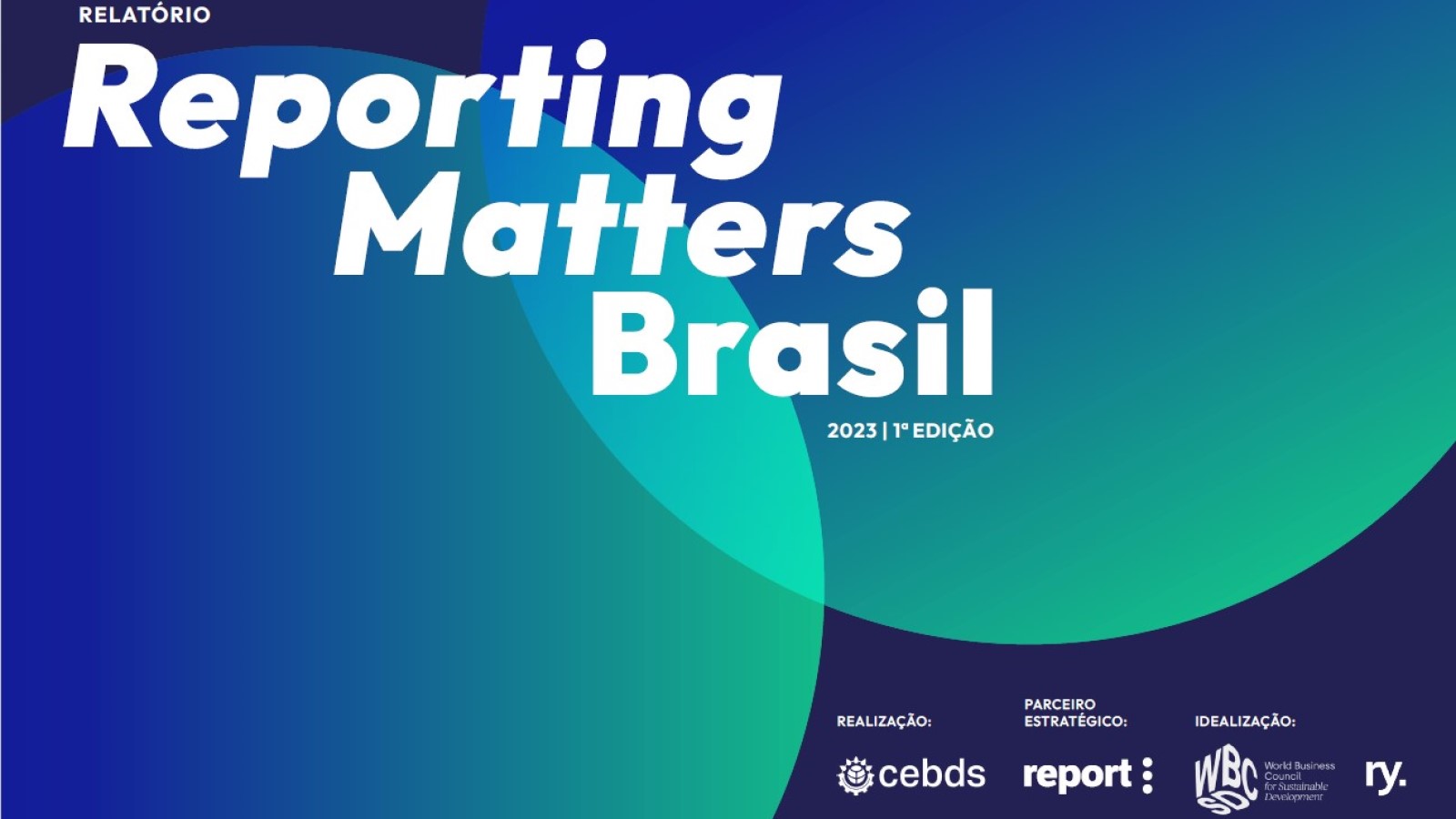Reporting matters Brazil: CEBDS study analyzes sustainability reports from 77 large companies operating in Brazil
[ad_1]
Brasília, 30 January 2024: An increasingly important aspect for companies, sustainability reports are the subject of a new study conducted by CEBDS (Brazilian Business Council for Sustainable Development), in partnership with the sustainability consultancy Report. The first Brazilian edition of Reporting matters was launched today. It represents an in-depth analysis of the 2022 reports from 77 companies, spanning various sectors of the economy operating in the country.
Recently, the CVM (Brazilian Securities and Exchange Commission) reinforced the non-financial reporting agenda by launching a resolution that mandates publicly traded companies to publish reports starting in 2026. Additionally, the significant growth of regulations and voluntary initiatives worldwide has brought sustainability reporting to the forefront. A broad range of stakeholders, especially investors, now demand comprehensive, comparable, and reliable information for decision-making.
Therefore, Reporting matters arrives in Brazil with the goal of assessing how companies report their actions and promoting the improvement of reports, following the methodology developed by the World Business Council for Sustainable Development (WBCSD), in collaboration with Radley Yeldar. The work involved a team of 17 consultants who devoted almost 800 hours to examine over 9,000 pages.
In total, 16 criteria and 81 sub-criteria were evaluated according to the Reporting Matters methodology. Among them are materiality, stakeholder engagement, external verification, goals and commitments, implementation and controls, and impact. The top 10 reports with the highest scores were, in alphabetical order: Ambev, Arezzo, Boticário, CBA, Eneva, GPA, Itaú, Natura, Petrobras, and Suzano.
“There is a growing demand from different stakeholders for companies to make commitments related to sustainability, establish specific and measurable goals, take concrete actions, and be transparent about the impacts generated—both positive and negative. Sustainability reports play a highly relevant role in this context. They can contribute to increasing trust and credibility in companies. Building a good report, however, can be a significant challenge, as there are now various standards and requirements,” comments Ricardo Mastroti, executive director of CEBDS.
According to the survey, 63% of the analyzed reports present the company’s priority Sustainable Development Goals (SDGs), but only 10% have defined clear goals related to the SDGs. Additionally, 74% of the reports underwent external audit (of either part or the entire report); 58% have a Net Zero commitment (to reduce greenhouse gas emissions) by 2050; 45% responded to their indicators in accordance with GRI standards, and 24% reported based on GRI standards.
“Reporting Matters Brazil arrives at a time when the sustainability reporting landscape is accelerating worldwide with the launch of new standards and frameworks, increased regulatory pressure, and climate change becoming present in investors’ portfolios. In this scenario, the study becomes a valuable tool to guide companies in the pursuit of more effective communication and management practices,” says Estevam Pereira, partner at the Report Group.
For the organizers, finding alignment between sustainability reporting standards will help meet the needs of global markets, including investors allocating capital internationally, companies operating and raising capital beyond national borders, and accounting professionals serving all users of corporate reports.
[ad_2]


